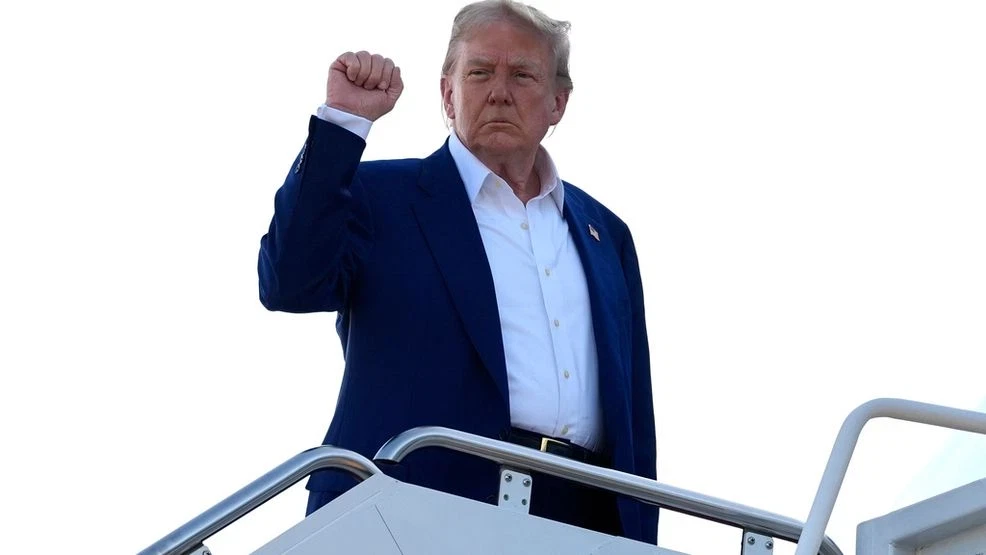In a pivotal move signaling the direction of his administration, President-elect Donald Trump has announced 10 new high-profile appointments, filling key positions that will play a significant role in shaping the country’s policies. These selections come as Trump prepares to take office, positioning his team to address some of the most pressing challenges facing the nation, from economic recovery and national security to foreign relations and healthcare reform.
This article explores the backgrounds and potential impact of these appointments, shedding light on the broader implications for U.S. governance.
1. Secretary of State: Rex Tillerson
One of the most high-profile picks of President-elect Trump’s cabinet was that of Rex Tillerson as Secretary of State. Tillerson, the former CEO of ExxonMobil, brings extensive experience in global diplomacy, having dealt with foreign governments and multinational corporations around the world. His deep ties to Russia, particularly his friendship with President Vladimir Putin, raised questions about potential conflicts of interest and whether his foreign policy approach would be aligned with traditional U.S. values.
Nevertheless, Tillerson’s selection signaled Trump’s intention to have a business-savvy, deal-making diplomat at the helm of the State Department. His focus on energy and economic partnerships could influence U.S. foreign relations, especially in energy-rich regions.
2. Secretary of Defense: General James Mattis
The selection of retired General James Mattis as Secretary of Defense was widely praised by both sides of the political aisle. Known for his military leadership and blunt rhetoric, Mattis, who served as the commander of U.S. Central Command, brings a wealth of experience in managing military operations, particularly in the Middle East. His reputation for strategic thinking and pragmatism made him a highly respected figure in military and political circles.
Mattis is expected to strengthen the U.S. military, emphasize defense spending, and navigate the complex challenges of global security. His leadership is likely to be critical in dealing with emerging threats, such as terrorism, cyber-attacks, and the rising influence of China and Russia.
3. Attorney General: Jeff Sessions
Jeff Sessions, a U.S. Senator from Alabama and former Attorney General of the state, was selected to serve as the nation’s top law enforcement officer. A staunch conservative, Sessions’ appointment as Attorney General marked a shift towards a tougher stance on immigration and criminal justice reform. Known for his views on illegal immigration, Sessions is expected to prioritize strict enforcement of immigration laws, as well as a more aggressive approach to crime and drug policy.
While his confirmation hearing was contentious, with opposition focusing on his past comments regarding civil rights and racial equality, Sessions’ tough-on-crime stance is expected to resonate with many of Trump’s supporters.
4. Secretary of the Treasury: Steven Mnuchin
President-elect Trump tapped Steven Mnuchin, a former Goldman Sachs executive and hedge fund manager, to lead the U.S. Treasury Department. Mnuchin’s selection was seen as a strategic move to signal a pro-business, pro-growth administration that will focus on tax reform, deregulation, and fostering a more favorable climate for corporate America.
Mnuchin’s expertise in finance and investment is expected to play a key role in shaping Trump’s economic policies, particularly his proposed tax cuts and efforts to simplify the tax code. He is also expected to oversee Treasury’s role in managing national debt, sanctions, and international financial relations.
5. Secretary of Homeland Security: General John F. Kelly
Another former general, John F. Kelly, was chosen to lead the Department of Homeland Security. Kelly’s previous military service, including his tenure as the head of U.S. Southern Command, positions him as an experienced leader in national security matters. His selection underscores Trump’s focus on border security and the fight against terrorism.
Kelly is expected to prioritize strengthening the U.S. border, dealing with cybersecurity threats, and ensuring the safety of Americans from external and internal threats. His leadership will be critical in managing the country’s immigration policies and the ongoing response to terrorist threats.
6. Secretary of Commerce: Wilbur Ross
Wilbur Ross, a billionaire investor known for his expertise in the distressed asset sector, was appointed Secretary of Commerce. Ross’ background in the private sector, particularly in industries like steel, coal, and manufacturing, aligns with Trump’s promises to revitalize American industry and create jobs.
As Secretary of Commerce, Ross is expected to push for policies that encourage domestic manufacturing, promote fair trade, and protect U.S. companies from unfair foreign competition. His appointment also signals Trump’s intent to renegotiate international trade agreements to secure better terms for U.S. businesses.
7. Secretary of Education: Betsy DeVos
Betsy DeVos, a philanthropist and prominent advocate for school choice and charter schools, was selected as Secretary of Education. DeVos is a controversial figure in the world of education policy, with critics arguing that her support for private school vouchers and charter schools undermines public education. However, her appointment reflects Trump’s promise to overhaul the U.S. education system by expanding school choice and pushing for greater parental control over educational decisions.
Her leadership is expected to focus on reducing federal involvement in education, while promoting alternatives to traditional public schools, such as charter schools, voucher programs, and online education.
8. Secretary of Health and Human Services: Tom Price
Tom Price, a former orthopedic surgeon and congressman from Georgia, was chosen to lead the Department of Health and Human Services. Price is a vocal critic of the Affordable Care Act (ACA), and his appointment signals Trump’s commitment to repealing and replacing Obamacare. Price’s deep knowledge of health policy, combined with his long history of advocating for conservative healthcare reforms, makes him a key player in shaping the future of U.S. healthcare policy.
Price is expected to push for significant reforms to Medicare, Medicaid, and the ACA, advocating for a more market-driven healthcare system.
9. U.S. Trade Representative: Robert Lighthizer
Robert Lighthizer, a seasoned trade lawyer, was named as the U.S. Trade Representative. With a long career in international trade, Lighthizer is known for his hardline stance on trade deals, especially with China. His appointment is part of Trump’s broader goal of renegotiating trade deals and challenging unfair trade practices.
Lighthizer is expected to focus on leveling the playing field for U.S. workers, revisiting trade agreements like NAFTA, and ensuring that American interests are prioritized in global trade negotiations.
10. Environmental Protection Agency (EPA) Administrator: Scott Pruitt
Scott Pruitt, the Attorney General of Oklahoma, was appointed to lead the EPA. Pruitt is a staunch skeptic of climate change and has a history of opposing environmental regulations, making him a polarizing figure in the environmental community. His appointment is seen as a move to roll back many of the Obama-era environmental regulations that Trump has criticized as burdensome to business.
Pruitt’s leadership is expected to focus on reducing government intervention in environmental policy, rolling back the Clean Power Plan, and promoting energy independence, particularly through the expansion of fossil fuel production.
Conclusion: A New Era of Governance
The 10 new high-profile administration picks by President-elect Trump reflect a shift towards a more business-oriented, conservative approach to governance. With a cabinet filled with successful businessmen, military leaders, and staunch conservatives, Trump’s team is positioned to enact significant changes across various sectors of U.S. society, including healthcare, education, defense, and foreign policy.
While his cabinet choices have sparked debate, they signal Trump’s intention to implement his campaign promises and shape an administration focused on reducing regulation, strengthening national security, and revitalizing the economy. As these appointments move through the confirmation process, the American public and political analysts alike will be watching closely to see how the Trump administration will take shape in its early days and what the future holds for U.S. governance under his leadership.



